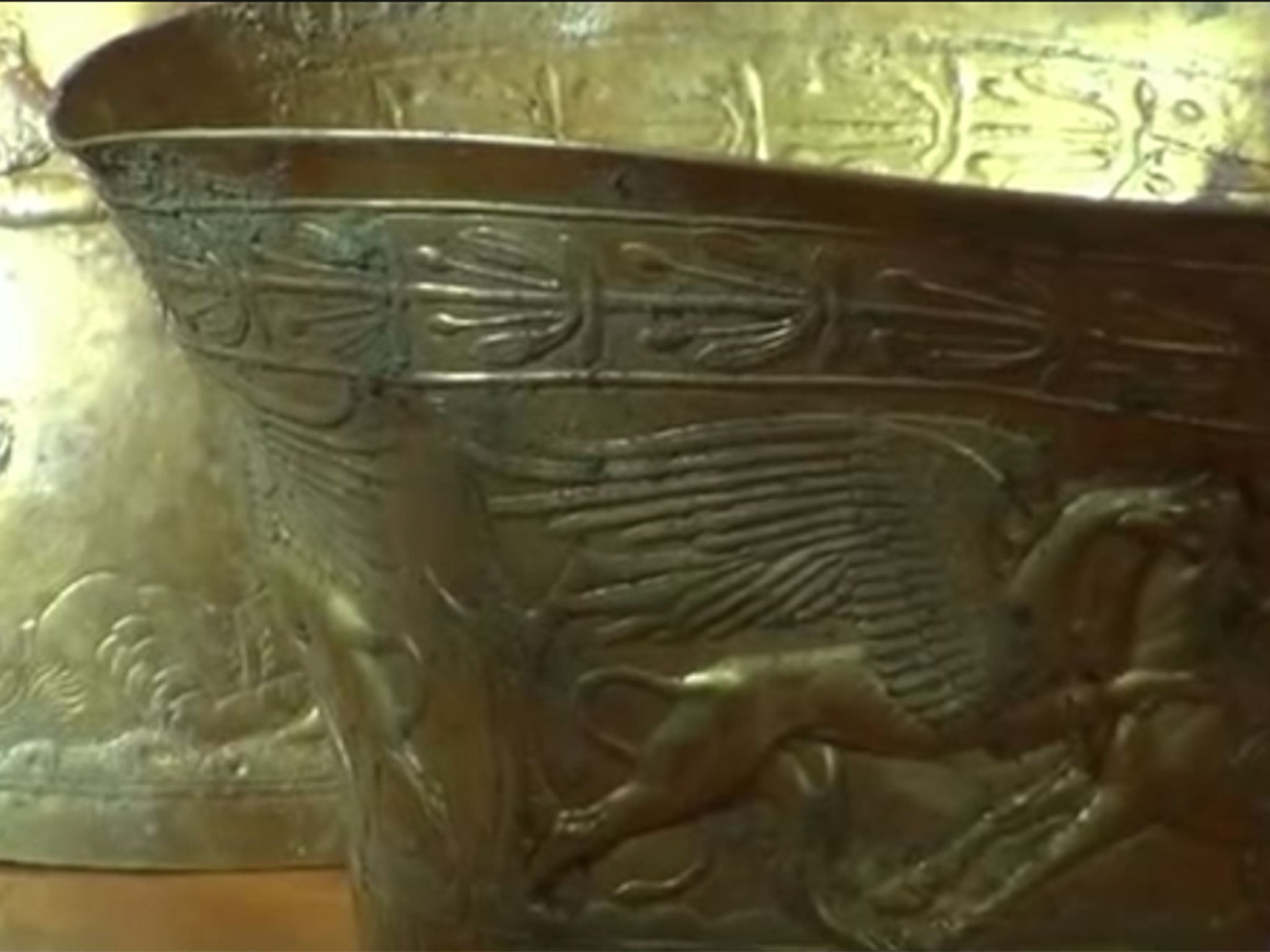Ancient 2,400-year-old gold bongs discovered in Russia
The residue of opium and cannabis was found inside the bowls

Support truly
independent journalism
Our mission is to deliver unbiased, fact-based reporting that holds power to account and exposes the truth.
Whether $5 or $50, every contribution counts.
Support us to deliver journalism without an agenda.

Louise Thomas
Editor
The “once-in-a-century” discovery of a set of solid gold bongs has offered a glimpse into the little-understood lives of Scythians, who ruled vast areas of Eurasia for a thousand years 2,400 years ago.
Ornately embellished with depictions of humans and animals, archaeologists found the golden vessels in a vast grave mound in the Caucasus Mountains of southern Russia, where the Scythians ruled between 9th century BC and 4th century AD.
They were discovered inside a chamber lined with stones and hidden with clay, alongside 7lbs of other gold items, including a finger ring, two neck rings, and a gold bracelet, MailOnline reported.
Anton Gass, an archaeologist at the Prussian Cultural Heritage Foundation in Berlin, told National Geographic: “These are among the finest objects we know from the region.
"It's a once-in-a-century discovery," he said.
Analysis on a sticky black residue in the golden cups revealed the objects were used to hold a concoction of opium and cannabis, which mirror the writings of Greek historian Herodotus, who said: “Scythians used a plant to produce smoke that no Grecian vapour-bath can surpass which made them shout aloud.”
The bongs were discovered in 2013, as the burial ground, or kurgan, was cleared to make way for a power-line.
Experts hope the highly detailed scenes which decorate the objects - including an elderly bearded man killing young warriors and griffons attacking a horse and a stag – will shed light on Scythian culture.
Subscribe to Independent Premium to bookmark this article
Want to bookmark your favourite articles and stories to read or reference later? Start your Independent Premium subscription today.
Join our commenting forum
Join thought-provoking conversations, follow other Independent readers and see their replies
Comments